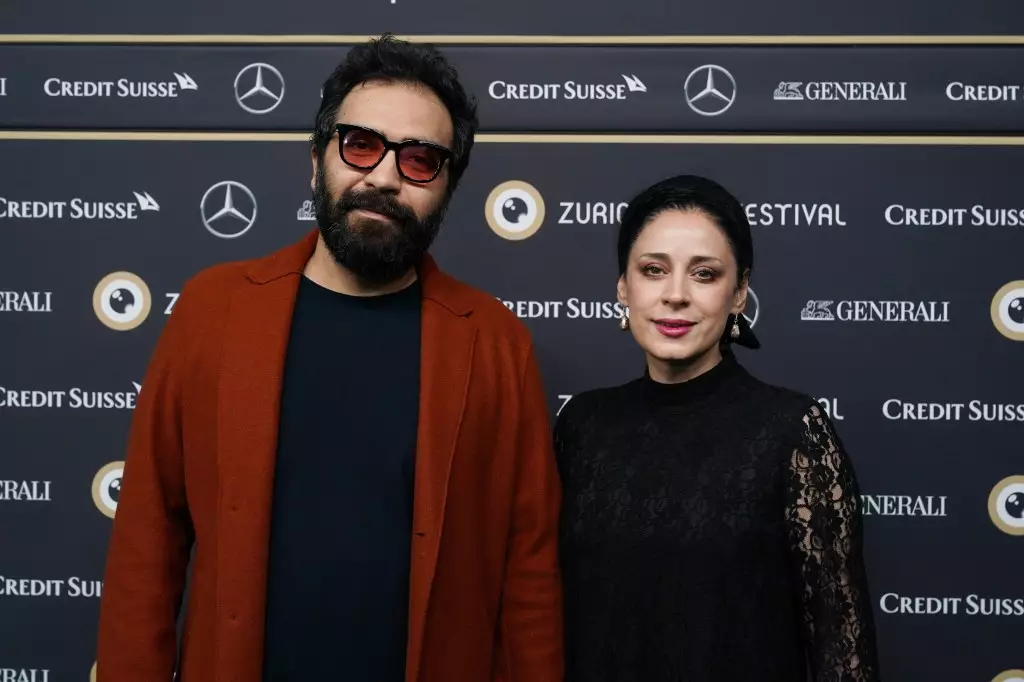In a disturbing and alarming turn of events, renowned Iranian directors Maryam Moghadam and Behtash Sanaeeha have found themselves entangled in the oppressive grip of Iran’s hardline Islamist regime. The duo, known for their thought-provoking works, including the highly acclaimed “Ballad Of A White Cow,” are now facing charges and a travel ban related to their latest film, “My Favourite Cake.” This unwarranted persecution has garnered significant attention, prompting numerous film organizations, festivals, and freedom of speech NGOs to come together and demand justice for Moghadam and Sanaeeha.
The nightmarish ordeal began at Tehran airport when Moghadam and Sanaeeha’s passports were confiscated, effectively imposing a travel ban on them. They were due to travel to Paris for the post-production of “My Favourite Cake,” a film that delves deep into the lives of women who dare to pursue their desires despite the severe restrictions imposed on them. The confiscation of their passports and subsequent charges against them reflect the Iranian authorities’ intolerance towards works that shed light on the struggles and aspirations of its people.
Amidst this oppressive atmosphere, over 30 film organizations, festivals, and freedom of speech NGOs have come forward to support Moghadam and Sanaeeha. The Berlinale, the International Coalition for Filmmakers at Risk, and PEN America are among the signatories of an open letter urging Iranian authorities to drop all charges against the directors and lift the travel ban. The letter emphasizes the crucial role filmmakers, writers, and artists play in society, fostering communication, collaboration, and inspiring citizens to dream of better futures. It calls for a change in the Iranian government’s demeaning treatment of these invaluable contributors.
Crackdown on Dissent
The alarming persecution faced by Moghadam and Sanaeeha is not an isolated incident but part of a broader crackdown on dissent in Iran. Over the past two years, numerous artists, writers, and cultural workers have been subjected to bans, arrests, and imprisonment. This crackdown predates the Woman, Life, Freedom protests but has intensified as the pro-democracy movement gained momentum. Disturbingly, Iran ranks second on the PEN America 2022 Freedom To Write Index for its oppression of writers and tops the list for imprisoning female writers.
The open letter also references other individuals who have fallen victim to Iran’s ruthless suppression of freedom of expression. Director Saeed Roustayi faced imprisonment for six months after screening his film “Leila’s Brothers” at Cannes in 2022 without permission. Journalist and Nobel Peace laureate Narges Mohammadi and rapper Saman Yasin have also experienced imprisonment and alleged torture while in custody. These cases highlight a broader pattern of intimidation and silencing against those who dare to challenge the regime.
The signatures on the open letter represent a collective plea for change and an end to the relentless persecution of filmmakers, writers, artists, musicians, and all individuals who strive to amplify the aspirations and dreams of the Iranian people. It emphasizes the need for governments to celebrate and uplift these voices instead of stifling them. The Iranian authorities must recognize the invaluable contributions of artists to society and abandon their oppressive measures.
The Harshness of the Judicial System
Adding to the concerns surrounding Moghadam and Sanaeeha’s situation is the knowledge that they will face trial under a judge connected to Iran’s notorious Evin jail. Evin jail is renowned for its harsh conditions and is considered one of the country’s most severe penitentiary institutions. This raises concerns about the fairness of any legal proceedings and the possible violation of the directors’ basic human rights.
It is important to note that this is not the first time that Moghadam has faced adversity in her career. Previously, she was banned from traveling for two years after starring in Jafar Panahi’s “Closed Curtain” and was even fired from a major Iranian film production by order of the Minister of Culture and Islamic Guidance. Despite these challenges, Moghadam has remained resolute in her commitment to her craft and the pursuit of artistic freedom.
The plight of Maryam Moghadam and Behtash Sanaeeha serves as a stark reminder of the oppressive environment faced by filmmakers and artists in Iran. The calls for justice and change from film organizations, festivals, and freedom of speech NGOs demonstrate the resilience of the global artistic community in standing up against such injustices. It is crucial that Iranian authorities heed these voices and put an end to the unwarranted persecution faced by these talented directors, as well as all individuals striving to express themselves through their art.

Leave a Reply